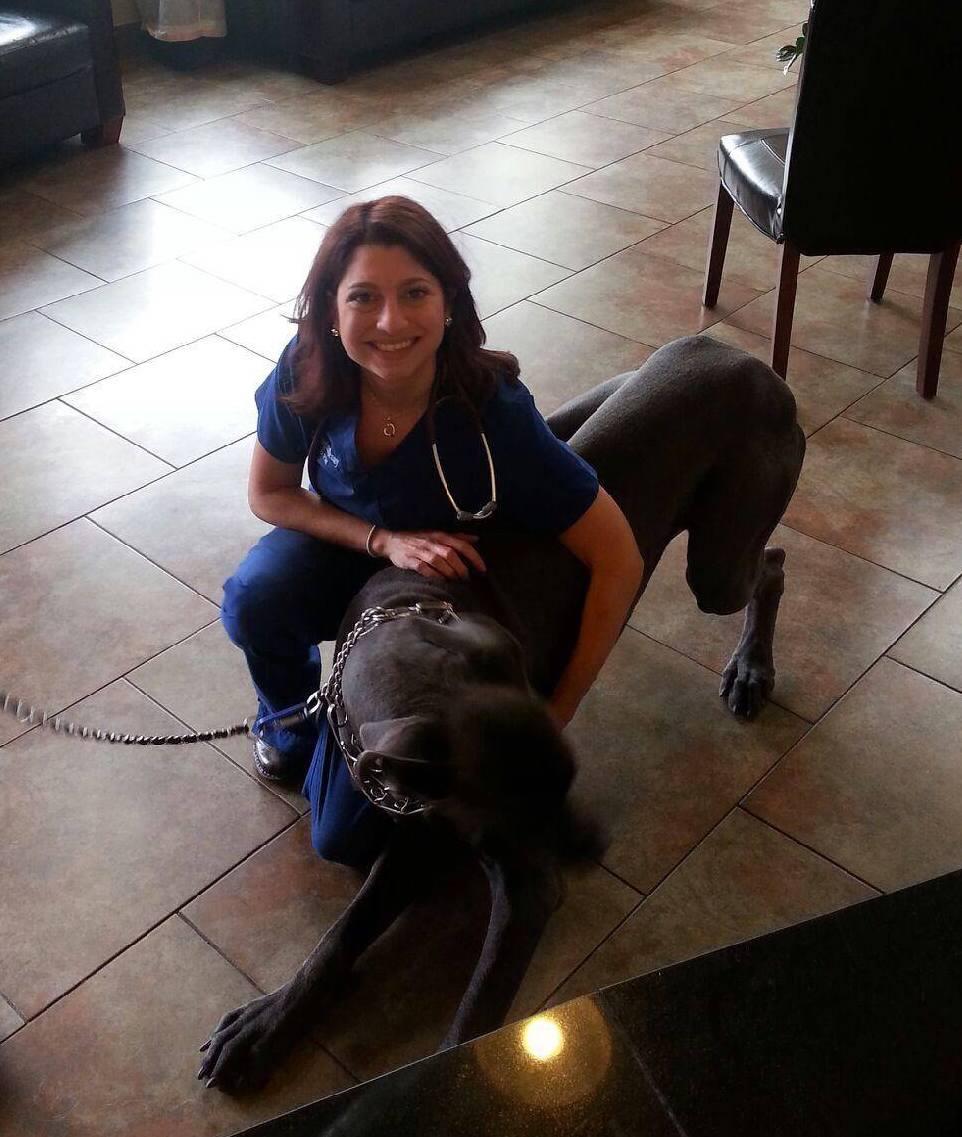Dog Cardiology FAQs Answered by Veterinarians
If your dog has recently been diagnosed with a cardiology-related illness or you suspect your precious pet has heart issues, you’ve likely turned to the web to get some answers. Unfortunately, there are pet parents, bloggers, and other “keyboard warriors” whose intentions may be good but will share misinformation that could be to the detriment of your dog. At GeniusVets, we believe that pet care information should come directly from veterinarians and not Dr. Google. That’s why we decided to send frequently asked dog cardiology questions to veterinarians, and we’ve compiled their responses to provide you with helpful information you can trust.
While we sourced the dog cardiology information below from leading veterinarians, we urge you to speak with your veterinarian, as they hopefully have the medical history on your canine companion. If you don’t currently have a veterinarian, use the GeniusVets Directory to find a competent and compassionate vet near you.
What is a veterinary cardiologist?
A veterinary cardiologist is a board-certified veterinarian in cardiology, which means that a general practitioner has gone to school for more years and passed a specialized cardiology test.
What are some signs and symptoms of a cardiovascular condition in a dog?
The signs and symptoms of cardiovascular conditions in dogs can vary from pet to pet.
Some of the common symptoms of cardiovascular conditions in dogs can be:
- Shortness of breath or elevated breathing
- Coughing, especially a progressive cough or even a collapse (often worsens at night)
- Abdominal swelling due to fluid buildup
- Fainting, which can be mistaken for a seizure
- Rapid weight loss when you’re not necessarily trying to get your dog to lose weight
- Getting tired quickly during walks or play sessions
- Restless sleep
Call your veterinarian immediately if you notice any of the symptoms mentioned above, as a cardiovascular condition can quickly turn into an emergency.
Can my dog exercise normally if they have cardiovascular disease?
Many times, dogs with cardiovascular conditions have decreased exercise abilities, but that doesn’t mean you shouldn’t exercise your dog at all. Dogs need that mental and physical stimulation to stay healthy, so as long as you’re not allowing your dog to overexert themselves, you should still encourage moderate exercise. This article by Wag! notes that dogs with enlarged hearts should still be encouraged to do things like go for walks, “Doga” (dog yoga), obedience training, hide and seek, and more. As the Wag! article notes, "While there is a need to restrict the activity and excitement level for a dog who has been diagnosed with an enlarged heart, this does not mean that these dogs can’t engage in low-key activities that stimulate their minds and may even improve the overall health of your canine."
How soon should I bring my dog in to see a veterinarian if I suspect that they have heart disease?
The sooner, the better. You know your dog better than anyone, so you should always be on the lookout for any changes in behavior. As with any illness that has serious health implications, it’s best to err on the side of caution and get your dog checked by your veterinarian. An earlier diagnosis and treatment nearly always carries a better prognosis.
How will a veterinarian diagnose cardiovascular disease in my dog?
If you suspect that your dog has a heart condition, we'll start with a complete physical exam, listen to the heart with our stethoscope, and feel for the dog’s pulse. We can do some specialized tests like x-rays and an echocardiogram, the latter of which is an ultrasound of the heart.
Why is early detection and diagnosis of cardiovascular disease in dogs so important?
As previously mentioned, early detection and diagnosis of cardiovascular disease in dogs are critical because the heart's essential, and we want to keep the dog healthy, and so we want to make sure that the heart is healthy. When we diagnose early, we can start medications to help slow down the progression of heart disease.
What types of preventive care can we do to help our dogs avoid cardiovascular disease?
Good physical exercise on a regular basis, a healthy diet, annual wellness exams, and keeping them at an ideal weight are essential preventive care methods for cardiovascular disease in dogs. And if we diagnose heart disease early on, there are certain medications that we can place the dog on that can slow down that progression.
The AVMA also has a helpful guide for pet cardiology issues. If you have further questions about dog cardiology, please reach out to your vet. If you don’t already have one, we are here to help you find a trusted local veterinarian.
The Following Veterinarians
Contributed To The Dog Cardiology Information On This Page


The Ultimate Guide
to Dog Care
This free guide is an indispensable manual for dog ownership. Filled with veterinary advice and recommendations on every important topic at each stage of your dog’s life, this is all the stuff that responsible dog owners need to know. That is why we are making it free!



